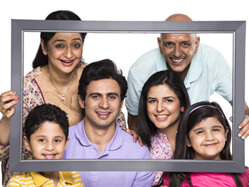Myth Versus Reality
The following are the myths or misinformation about ABHA that every Indian needs to know:
- Myth: ABHA means registration under the Ayushman Bharat – Pradhan Mantri Jan Arogya Yojana (AB-PMJAY).
Reality: Notably, ABHA is just a unique number that is used to link the health records of an individual. Getting an ABHA number does not mean enrolment in AB-PMJAY.
- Myth: ABHA is a replacement for Central Government Health Scheme (CGHS) services or Health Management Information System (HMIS)
Reality: It is to be noted that ABHA is not a replacement of current CGHS services or HMIS, but an add-on to CGHS services.
- Myth: Linking health records to ABHA can make other doctors see the medical history of a person without his/her consent.
Reality: When providing consent, an ABHA user does not end up sharing all his/her health records associated with the account. The consent is granular, which means that it can be provided separately for each of the health records as per the wish of the ABHA user.
- Myth: The government or any other entity can track the health status of an ABHA user through ABDM.
Reality: ABDM uses the federated architecture to create an interoperable platform for linking the health records of ABHA users. This implies that the data will continue to be processed and stored at the same place where it was created. And, the Government of India does not have access to such data.
- Myth: Digital health records linked to ABHA get shared with other doctors or healthcare facilities without the user’s permission.
Reality: Only an ABHA user can share his/her records with other doctors/hospitals using different digital health systems after giving his/her consent.
- Myth: The government uses ABHA users’ data.
Reality: As of now, the government does not use health records linked to ABHA. However, it plans to define protocols for the anonymisation and aggregation of data and the use of such data to make policies and other relevant interventions in the public interest, after extensive consultation with stakeholders.
- Myth: Health records are not safe and secure on the ABDM system.
Reality: ABDM does not store any medical records, but healthcare providers do as per their retention policies. Also, it is to be noted that ABDM only facilitates secure data exchange between the intended stakeholders on its network that too after receiving consent from an ABHA user. Further, only the data collected for registries like the Health ID registry, Healthcare Professional Registry and Healthcare Facility Registry is stored centrally in a safe and secure manner to provide interoperability.
- Myth: ABHA cannot be used outside the government hospital/CGHS.
Reality: The ABHA number can be easily used outside government hospitals or programmes. However, it is for private players to decide whether they want to use it or not.
Conclusion
ABHA is intended to create a digital health ecosystem. The government’s objective behind this mission is to provide seamless and efficient digital health data exchange in the ecosystem of ABDM. Through ABHA, individuals, healthcare professionals and service providers can create and store personal health records that can be easily accessed 24/7 based on an ABHA user's informed consent.
FAQs
1. What is the fee for generating an ABHA number?
An ABHA number can be created free of cost by enrolling in the Ayushman Bharat Digital Mission.
2. Is it mandatory to get an ABHA number?
No, generating an ABHA number is voluntary.
3. What are the eligibility requirements for ABHA?
There are no such eligibility criteria for ABHA registration. All Indian nationals can apply for the same.





























 An ISO 9001:2015
An ISO 9001:2015 

